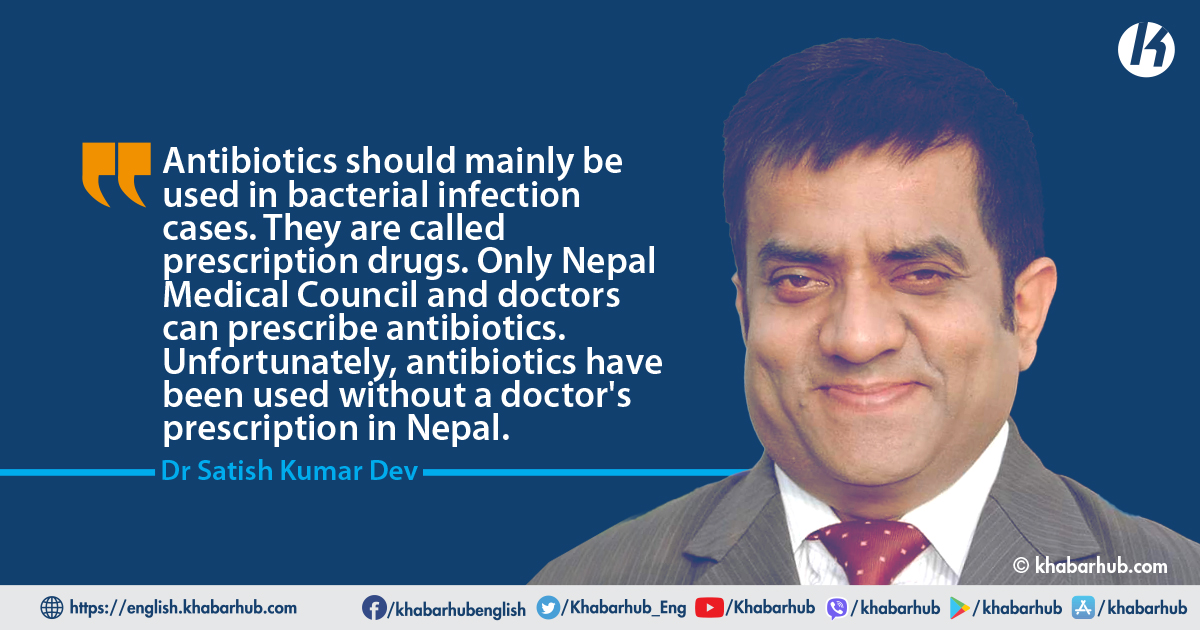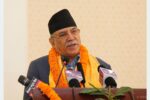KATHMANDU: The number of people using antibiotics has increased significantly of late. Using antibiotics prevents bacterial infections in the body.
In other words, it destroys the existing bacteria and prevents bacterial infections. Antibiotics should be used primarily for bacterial infections. This is called a prescription drug.
Only our Nepal Medical Council and doctors can prescribe. However, in Nepal, antibiotics are being used without a doctor’s prescription.
Due to the unavailability of doctors in many places in Nepal, many are used unknowingly. In many places antibiotics need to be ‘subsidized’ but in many places they are not available. It can be said that due to this the use of antibiotics seems increasing alarmingly.
What quantity of antibiotics should one use?
How much antibiotics to use and how much to feed varies according to the standard treatment gynecology. Some antibiotics are taken for 3 days, some for 5 days and some for 7 days. Similarly, it is eaten once a day, twice a day, three times a day.
It should be taken as per the advice of the doctor or using the guideline. Antibiotics should be used only in the amount prescribed by the doctor.
Side effects of long use of antibiotics
The side effects of painkiller anesthetic antibiotics are long lasting. Long use of side effects can cause gastric or peptic ulcer and in long run is likely to damage gastrointestinal tract and can also affect liver and kidneys. So it should not be used for a long time.
What is the status of antibiotics control?
The main problem with antibiotics is the possibility of antibiotic resistance. The antibiotics we are taking now might stop functioning effectively. There may be no antibiotics left in our generation and the generation hereafter.
The global threat is antibiotic resistance. The WHO called it the slow-moving Tsunami. It is feared that such resistance can result in a horrible pandemic.
Although many attempts have been made to ward off the situation, the WHO plans are expected to be more effective. WHO has released a documentary on the National Action Plan for the Prevention of Antibiotic Resistance.
It was called the Global Action Plan. Nepal has also made a national action plan. For this, 5 components have been prepared. First of all, we have to launch an awareness program.
urther surveillance and infection control and prevention should be done. It is mainly a major component of antibiotic resistance. We are also moving forward to ward off antibiotic resistance by observing the effectiveness of the activities in action.
What antibiotics to use and what not?
Antibiotics are antidepressant drugs. It should not be used without a doctor’s advice. Antibiotics taken by one person may not be compatible with another.
There is a course of antibiotics, you have to take it accordingly. If you stop taking in between, you should take only on the advice of a doctor as there is a risk of resistance. Antibiotics are bacterial infections that cause viral infections that are short-lived. In such cases, antibiotics should not be used.
Why is it given more than required?
There can be many reasons for this. Doctors can give more than the real requirement due to the wrong diagnosis. Sometimes the patients ask for it themselves. Antibiotics are appropriate if a standard treatment diagnosis is followed. Otherwise, it might introduce hazards. We should minimize the hazards.
Lack of policy rules
We have talked about the lack of regulation of antibiotic policy in the global standard. But the government efforts alone are not enough.
The programs meant to address the antibiotic resistance have to be subject to the united integrated approach to be executed by the private sectors and the health sector. There have been few attempts to address the issue through the multi-sector approach integration.
But the result of using antibiotics for long is that the antibiotics do not work. This leads to another kind of disaster
What can be done to prevent it from further harming mankind?
The prevention strategy of antibiotic resistance has to be in tune with the National Action Plan prepared by the Government of Nepal. It emphasizes two to three aspects. One regulatory side is the implementation side of the government. Another is taken as the technical aspect and public aspect.
Antibiotics should not be misused. Its use should not be encouraged. The government also should take some initiative in the awareness strategy. The results of antibiotic resistance should also be incorporated into school education systems. Only then can we reach the goal of antibiotic resistance.
What can be done as a health worker?
We, the health workers, had to be a team that could create prescriptions. The strategy is based on the results of antibiotic resistance. ‘The right dosage of drugs in the right duration’ strategy has to be taken ahead. If we limit the use of antibiotics this way, the resistance can be minimized.
What should the user pay attention to?
Awareness strategy is a major component of antibiotic resistance. The major state of the awareness is the man.
Once we had set up a desk at Bhatbhateni supermarket and asked the visitors how many of them took the medicine at the doctor’s prescription.
About 65 percent of the respondent said that they bought and took the antibiotics themselves. People with antibiotic resistance should be aware of themselves and should ensure that they do not take medicine without a doctor’s prescription.
What to do to control antibiotic resistance?
Antibiotic resistance is now a global threat. If left unmanaged, they can be left astray and lose the right path. If there is an accident, trauma, etc the mortality rate seems to increase.
This resistance can have dire consequences on Islant surgery orthopedic surgery and neurosurgery. There is a big role to be played in the overall health sector. We have to ensure that we must all move forward to prevent the misuse of antibiotics.
The chances of developing a new antibiotic are slim. According to the National Action Plan, the use of antibiotics should be reduced by adopting the Awareness Strategy. Prevention should be the main purpose of the movement.









Comment